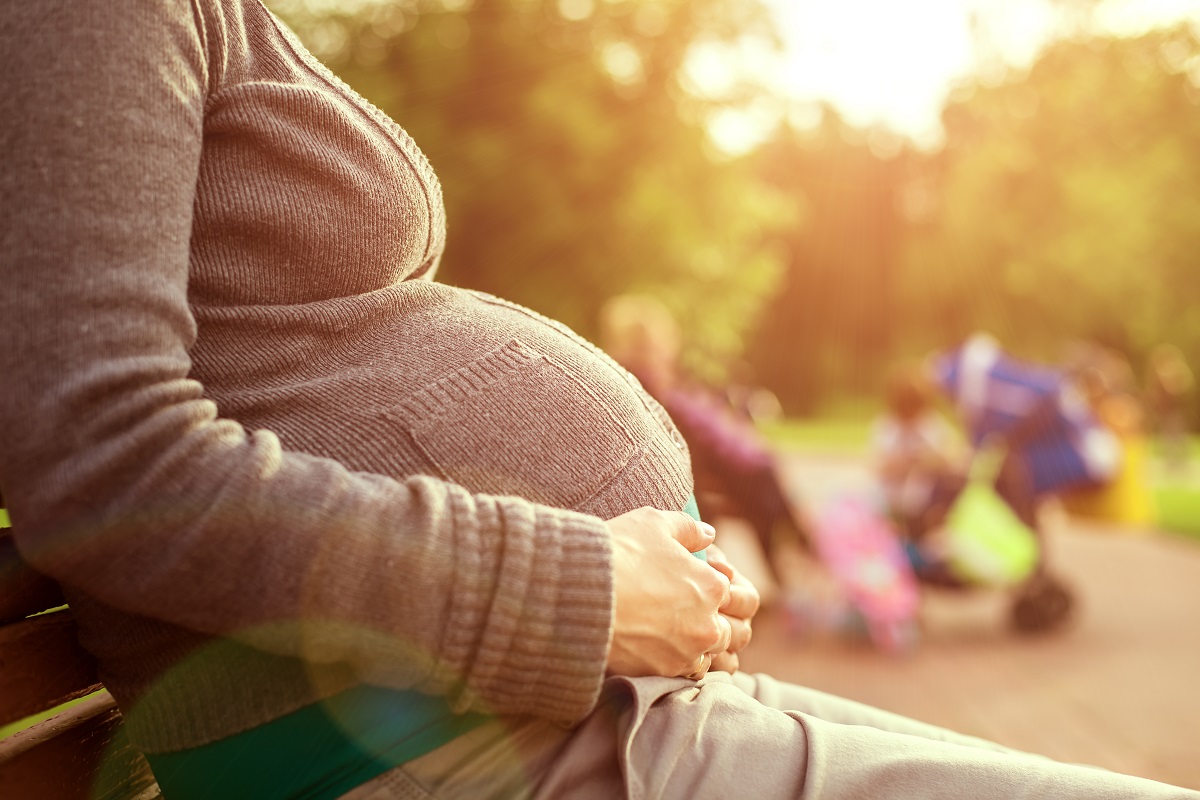Being young and ambitious, women have a plan for their life that they want to go exactly to plan.
It usually involves a timeline consisting of college, marriage, career, and family, in that order.
The issue being that each of those major life milestones takes considerable time, and that’s assuming nothing else gets in the way.
And we all know that life is sure to toss us a couple of curve balls from time to time. So, you can count on a 5-10 year plan looking more like a 10-15 year plan.
With that being said, more and more mothers are having babies later in life, presenting more data on advanced maternal age pregnancies; which is having a baby after 35.
When you hear the term “advanced maternal age” it conjures images of gray-haired women who have pulled a Sarah and Abraham.
The term seems a little harsh for women who are in their mid-thirties, which many consider to be a prime in life.
Pop Sugar Mom reported:
“A report from the CDC says that the number of women who are waiting to have a baby a little late in life is on the rise. The average age for women of all races to start having kids has been getting older. Beginning in the 1970s, the first birth rates for women between the ages of 35 and 39 started to increase. There’s also been a more recent trend of women waiting to have their first child until they’re between the ages of 40 and 44.”
At this age you are still active, often raising other children, and in a stable place in life to support a growing family.
So, why all the hype around the extra attention and consideration when having a baby at the age of 35 and beyond?
Due to many factors, the rate of birth defects does double from .5%-1% in advanced maternal age pregnancies.
According to Mayo Clinic, there are some other increased risks when conceiving over the age of 35:
- getting pregnant with multiples
- developing gestational diabetes
- having high blood pressure
- giving birth prematurely or having a child with a low birth weight
- needing a C-section
- having a baby born with chromosome abnormalities
- losing the pregnancy
The thing to remember when looking over this list that may seem daunting is that every pregnancy has risks and the potential for complications.
With more women utilizing effective contraception, the rising cost of childcare, and feeling they are not in a position within their careers to care for a child, a cultural shift has occurred.
Medical News Daily reported:
“Recent preliminary data from the Centers for Disease Control and Prevention (CDC) indicate that in 2016, for the first time in three decades, birth rates among women aged 30 to 34 surpassed those among women aged 25 to 29 in the United States.”
With this new trend, more data is available for advanced maternal age pregnancies. The results are more favorable than you may have guessed.
In the Population and Development Review, a study revealed that kids born to advanced maternal age women may have children that are smarter and taller in comparison to children born to younger mothers.
Another study from Boston University School of Medicine found that women who have children over the age of 33 were more likely to live longer than mothers who stopped having kids at 29.
I’m sure this is because watching your children grow and having young grand-children to keep up with later in life is proper motivation to stick around a while longer.
Mikko Myrskylä, director of the Max Planck Institute for Demographic Research, has done extensive research on advanced maternal age pregnancies and reported in Medical News Daily that:
“Our findings suggest that women should not be concerned about their age per se when considering to have a child,” said Myrskylä. “It seems that individual life circumstances and behavioral choices are more important than age.”
Myrskylä continues by reporting on the change in perspective needed on mothers having advanced maternal age pregnancies:
“The benefits associated with being born in a later year outweigh the individual risk factors arising from being born to an older mother. We need to develop a different perspective on advanced maternal age. Expectant parents are typically well aware of the risks associated with late pregnancy, but they are less aware of the positive effects.”
Many women who conceive later in life will have a healthy baby, with no complications.
The stigma around advanced maternal age puts undue stress on women who want to start a family after the age of 35.
All the positive effects of later in life pregnancies should be pointed out by obstetricians when life planning is being discussed.
Please let us know in the comments section if you have had an advanced age pregnancy, and what your experience was like.

